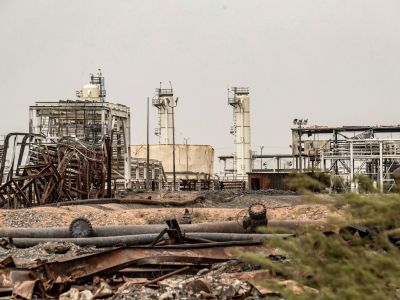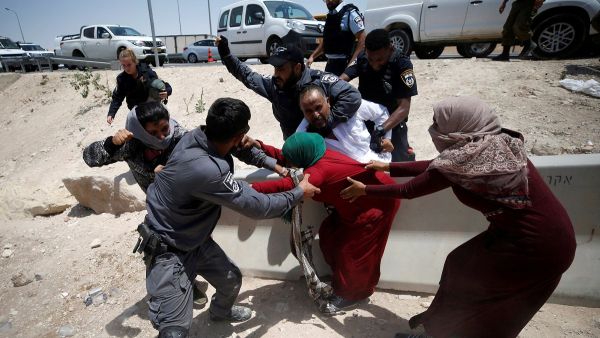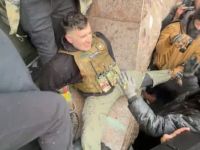Israeli troops injured 35 people and arrested 10 others as they began to demolish their Bedouin village in a strategic part of the occupied West Bank, news website Arab48 reported on Wednesday, citing local residents and activists.
The soldiers beat and dragged a local woman as she attempted to stop them from razing the village of Khan al-Ahmar, footage of the incident shows.
"The soldiers brutally attacked the residents of Khan al-Ahmar and protesters as they tried to prevent the demolition of their homes," one villager told the Palestinian-Israeli news outlet.
The protesters waving Palestinian flags also tried to block a bulldozer, while some climbed onto it in protest.
On Tuesday, the UN urged Israeli authorities against the forced eviction of the some 181 people living in the settlement, slamming the move as "discriminatory” and incompatible with international law.
Israeli authorities claim the village and its school were built illegally and in May, the supreme court rejected a final appeal against its demolition.
But activists say the villagers had little alternative but to build without Israeli construction permits as the documents are near impossible for Palestinians to obtain for that part of the occupied West Bank.
Khan al-Ahmar is located east of Jerusalem near several major Israeli settlement blocs and close to a highway leading to the Dead Sea.
Activists are concerned continued Israeli settlement construction in the area could effectively divide the West Bank in two.
In another Bedouin village in the same region, Abu Nuwar, Israel carried out a series of demolitions on Wednesday on what it described as illegally built structures.
The village is made up mainly of makeshift structures of tin and wood, as is traditionally the case with Bedouin villages.










